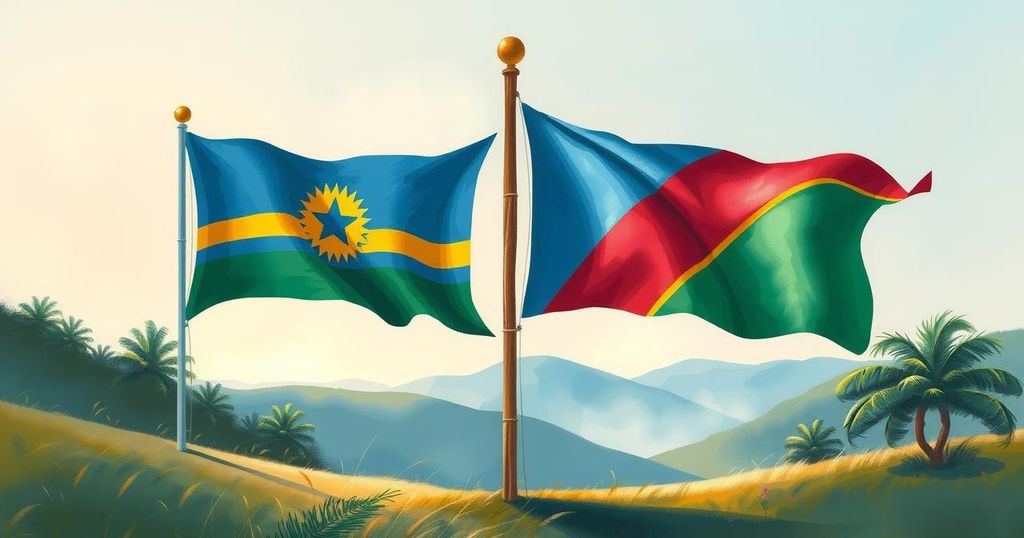The presidents of Rwanda and the DRC held surprise ceasefire talks in Qatar, reaffirming their commitment to an immediate ceasefire following failed peace negotiations in Angola. They emphasized the urgent need for direct dialogue to resolve underlying conflict issues. The M23 group’s recent withdrawal from peace talks has added complexity, amidst accusations of international sabotage and ongoing violence in Eastern DRC.
The presidents of Rwanda and the Democratic Republic of the Congo (DRC) engaged in unanticipated ceasefire discussions in Qatar shortly after a failed peace accord in Angola. Rwandan President Paul Kagame and DRC President Felix Tshisekedi convened with Qatar’s Emir, Sheikh Tamim bin Hamad Al Thani, to reaffirm their commitment to an immediate and unconditional ceasefire, aligning with a prior agreement made at an African summit last month.
During this significant meeting, the leaders emphasized the necessity for “direct political dialogue” among all parties involved to effectively tackle the underlying issues of the conflict in Eastern DRC. A statement from the Rwandan presidency highlighted President Kagame’s optimism regarding collaborative efforts accelerating progress towards peace and stability in the region.
The confidentiality surrounding the talks was maintained until President Tshisekedi’s return to Kinshasa, with the Congolese presidency later confirming that an immediate ceasefire has been agreed upon. They also mentioned that specific implementation details would be delineated in subsequent days.
Earlier that day, Angola had cancelled peace discussions after the M23 group, which is backed by Rwanda, withdrew unexpectedly. The M23 accused certain international entities of sabotaging peace initiatives, particularly citing sanctions imposed by the European Union.
The M23 indicated that the sanctions impede dialogue and halt progress, attributing their withdrawal to the hostile environment fostered by Kinshasa’s actions. The European Union’s sanctions targeted several Rwandan military figures and senior M23 leaders, further complicating the situation.
Since the beginning of the year, the M23 has captured pivotal cities such as Goma and Bukavu, resulting in significant casualties cited at over 7,000 lives lost. A United Nations report alleges that Rwanda effectively controls the M23 and utilizes its forces to access mineral wealth in the DRC, a claim which Rwanda refutes while asserting that it faces threats from the FDLR group in the region.
The surprise ceasefire discussions between the presidents of Rwanda and the DRC signify a pivotal moment in addressing ongoing regional conflicts. Both leaders have shown a commitment to maintaining peace, yet the underlying tensions remain complex, particularly with the role of the M23 group and international sanctions. Continued dialogue and cooperation between the involved parties are essential for establishing lasting stability in the region.
Original Source: www.hindustantimes.com




